Bespoken Word – the riders speaking out on mental health
Finally people are talking openly about unhealthy weight and body image pressures, as well as other damaging mental health issues that can haunt us and our community
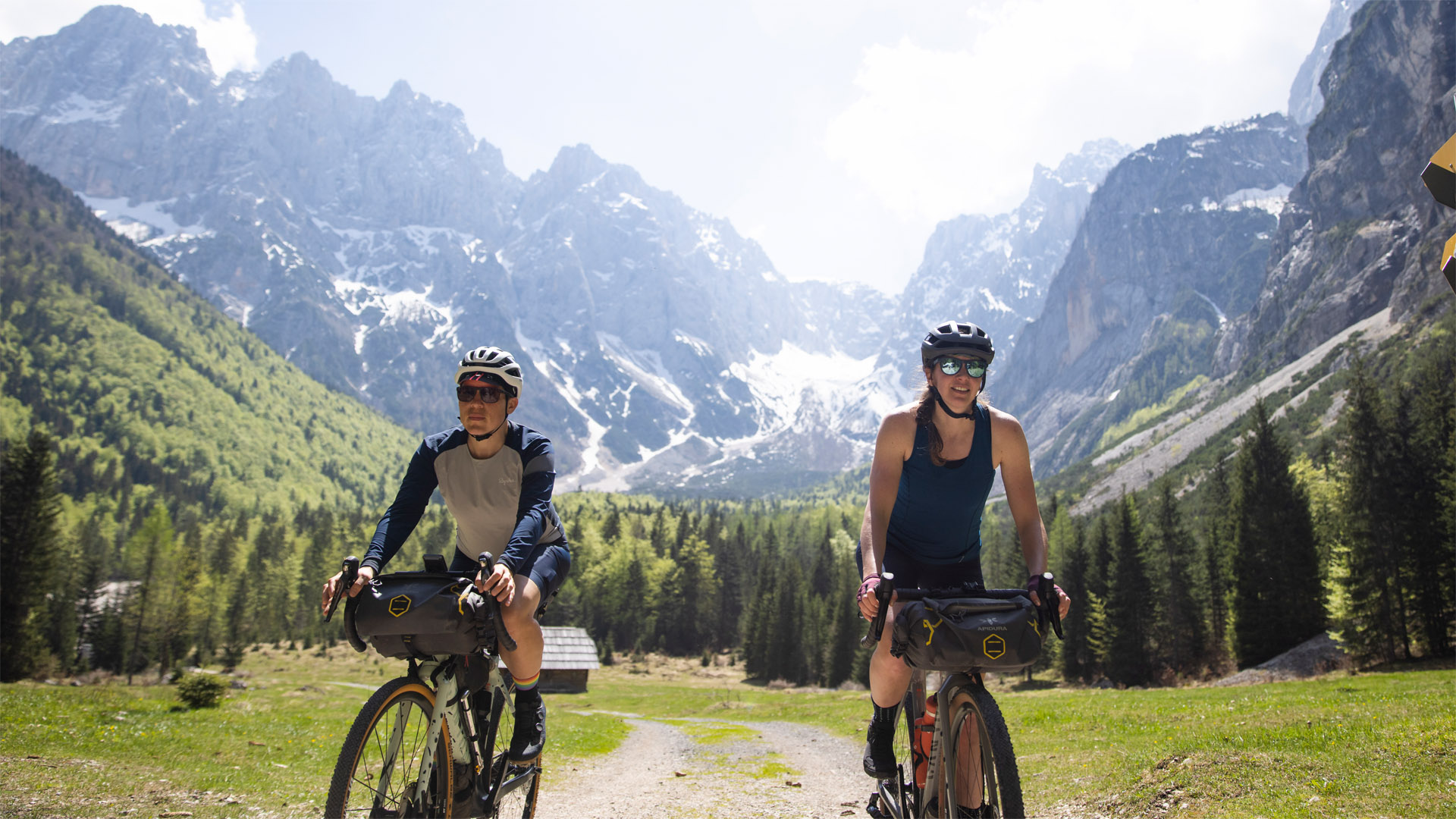
Perhaps ironically, the actual tech side of mountain biking grasped the idea that heavier could be faster/safer/stronger a while ago. XCO racers now often ride 30mm wide rims and 2.4in wide tires, often with impact inserts inside. Travel is getting longer on their bikes and full suspension and dropper posts are now standard issue.
Because while you can always pull out a basic physics equation that the less mass you carry uphill or accelerate out of a corner, the less energy you use, the maths of mountain biking is way more complex than that. Bigger tyres and suspension roll more smoothly over rough terrain that skinny rubber and hard tails can get hung up on. They’re also more likely to survive rock gardens and other impacts. Meanwhile, dropper posts and longer, stiffer frames allow faster, safer descending. You know, all that stuff that we realised while trail riding a long time ago.
But bikes are inanimate objects removed from the crushing pressure of social, societal and self judgement, unaffected by obsolete doctrine from coaches, doctors, other athletes, casual spectators and commentators and perhaps most damagingly, ourselves. Thankfully, that tide finally seems to be turning, thanks to an increasing number of brave and brilliant people speaking out on the subject.
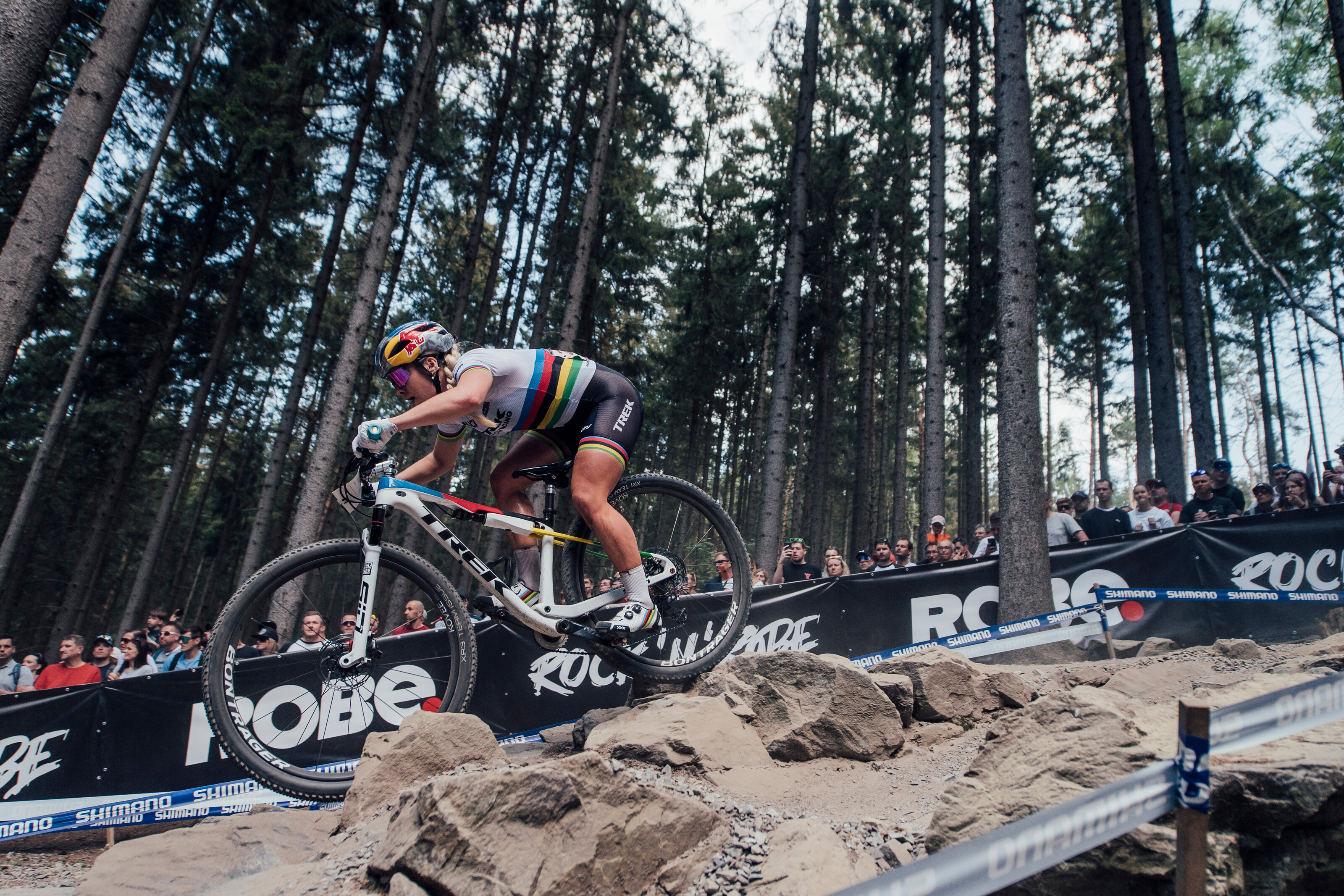
Weight of expectation
Evie Richards has had a tough year as the infamous curse of the World Championship jersey played out with season-long back pain issues and Covid setbacks. But she was clearly battling worse demons in her own head – and around her – for a long time before breaking through physically and mentally to take that World Championship jersey and multiple World Cup wins.
She bravely and brilliantly used her Commonwealth games success to bring all that into the open with an interview for the BBC in August. Not only did she talk about the pressure placed on her to lose weight to a level where her body did not function properly. She also talked about the pressure to pursue a near-monastic separation from social life and friends because she thought you had to be that ‘serious’ to be an elite rider. “When I joined the British Cycling Academy I stopped seeing so much of my friends and family, and cut back on the food I was eating, then dedicated every hour of my day to training,” she said. “I thought that was what you did to go fast and win.”
‘I rode much better when I let myself be a natural weight and lived a less monastic life’ is something that's been said many times, but to see Evie use her position to make it national 'news' is awesome.
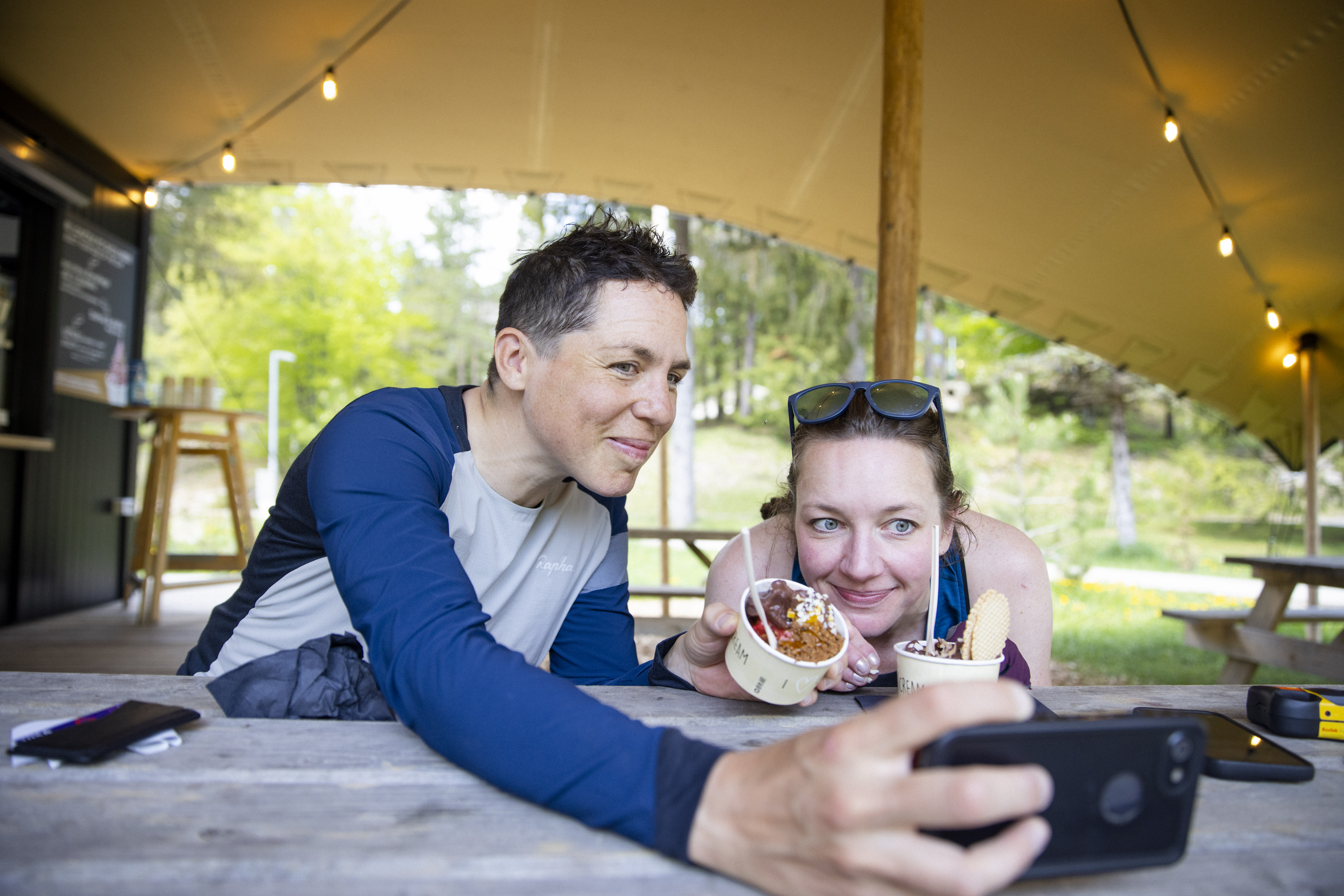
The long game
Last week, Canyon bikes released a massively important film following two of their riders – Jenny Tough and Emily Chappell – on a gravel tour through Slovenia. As inspirational as the film and their ultra distance (riding and running) achievements are, it’s the central message of body image and physical perception that’s massively important. That’s because Jenny and Emily talk honestly, candidly, beautifully and very bravely about many things, but primarily their own body image and the imposter syndrome they've always felt within sport, thanks to its damaging six-pack and ‘shredded body’ stereotypes.
As Emily says in the introduction, “We realized that the thoughts plaguing our own minds were not actually unique to us – that there is a widespread problem here that should theoretically be easy to fix. We wanted to start being part of that fix. We hope that the film will start a thousand conversations and give people the space and opportunity to bring their own body issues into the light. It’s often only when you finally look the problem in the face that you start to recognize it for what it is, and for both of us, it was hearing the other person talking about her poor body image and thinking, ‘but you have nothing to worry about,’ that ended up being a lightbulb moment.”
There are other riders who are talking about the bigger, darker picture of being an athlete or just trying to be under the spotlight of sport. Olympic champion Jenny Rissveds, multiple and current World Champion Pauline Ferrand-Prévot, Tahnée Seagrave, Valentina Höll and others have all helped raise awareness of mental and physical issues including long-term concussion related problems – an incredibly brave thing to do in a scenario where admitting ‘weakness’ has traditionally been seen as handing a competitive advantage to others.
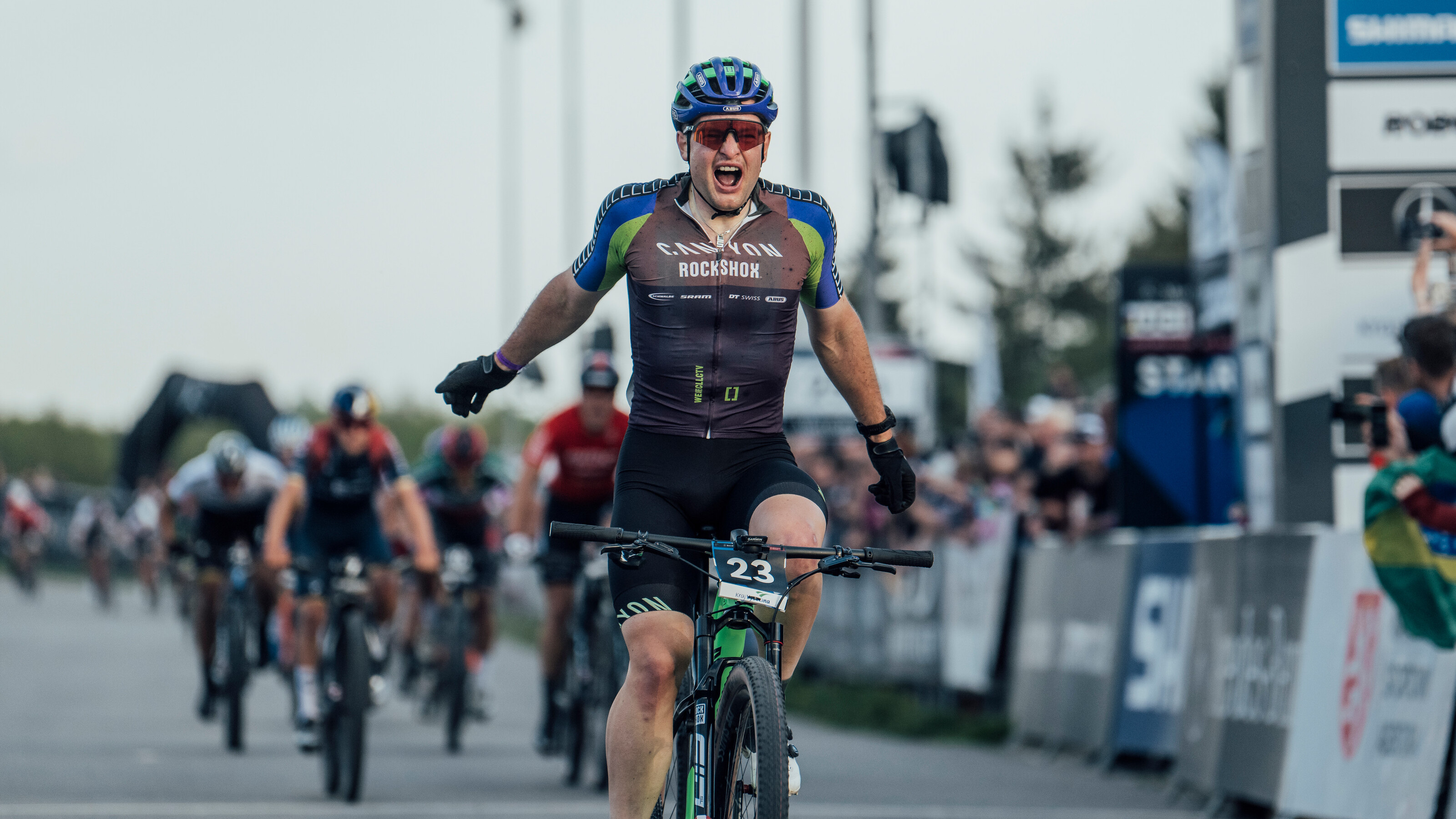
Toxic masculinity
And while these examples come from a female perspective there’s an equally damaging pressure put on male riders. This is something Tommy Bustard at the fantastic, painfully self searching Yorkshire Grit podcast has been discussing with other athletes for several years now. Tommy has also been brave enough to include all the attendant mental, confidence and depression-related aspects that so often plague us, both inside and outside sport. Training too hard, eating too little and separating ourselves from rational ‘real world’ social support networks can create a pressure cooker of doubt and bad decisions. Basically it’s being ‘hangry’ multiplied, turned inward and played out over months and years of a downward spiral, starting from whichever chiselled muscleman we first saw being presented as a hero.
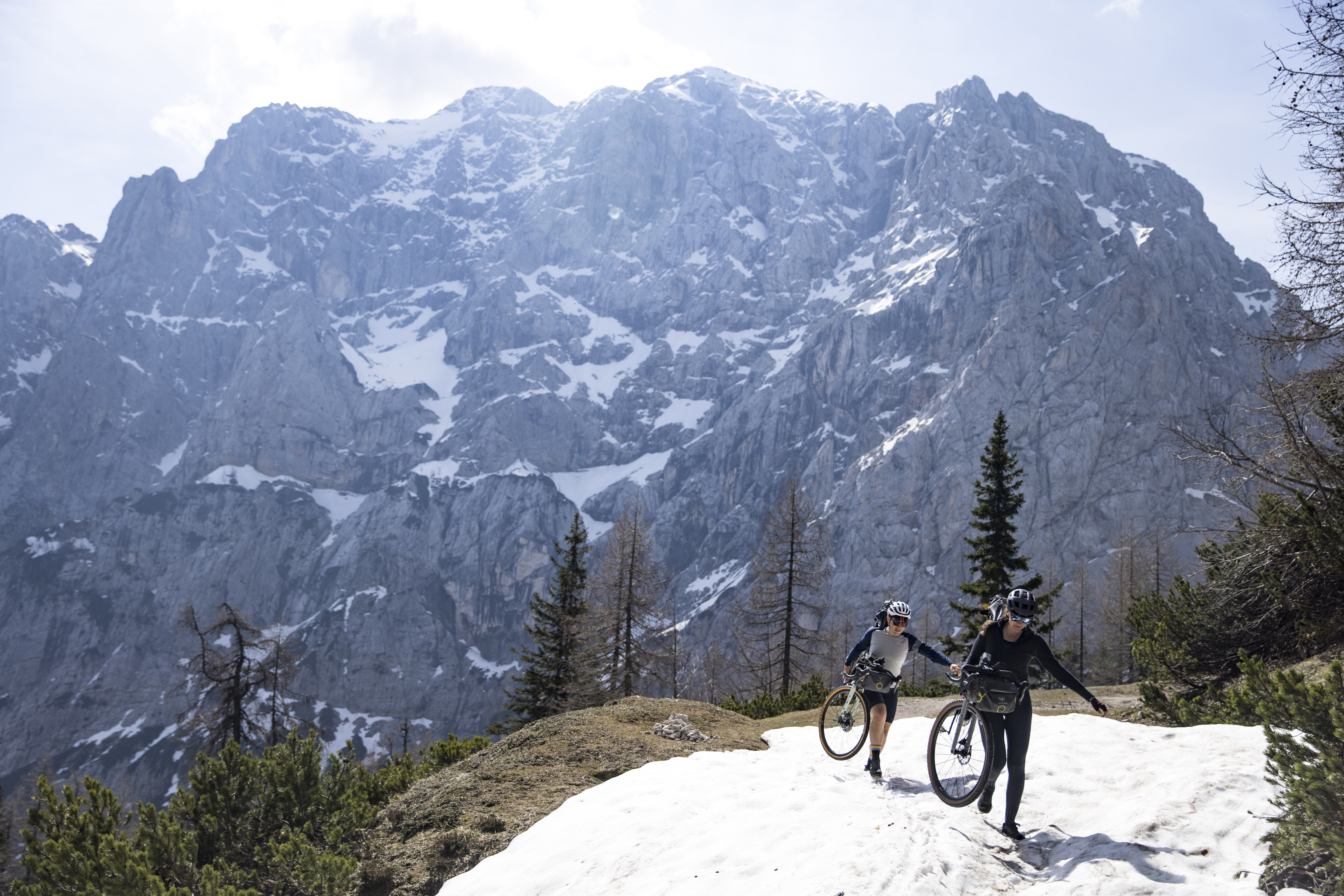
Them and us
And while Tommy’s guests – and Jenny, Emily, Evie and other ambassadors for this new openness – are all at the top of their respective games, the greater impact of what they’re saying comes when we let those words resonate through our community. Because I’m pretty sure that whatever shape we are in, or however fit we are, many of us would like to be ‘better’ or ‘more like them’.
Personally speaking I’m exceptionally lucky that riding bikes most days keeps my weight down and that my aerobic fitness is reasonable for the fundamentally unremarkable body I’m working with.
But am I content with that? Do I take on board all those ‘Well, it’s alright for you’ comments? Hell no. And it’s getting worse, not better, as I roll into my fifties and fight the natural decline in what I should be able to do. I don’t get comfy on the cushion of riders I pedal past, I writhe on the bed of nails of those who pedal away from me. I don’t acknowledge the natural DNA advantages, personal sacrifices, diligent training focus or lifestyle choices that create those gaps. I just waste time and energy beating myself up about not doing what I used to, regardless of how realistic that might be.
I still look back with rage-tinted glasses to the days when I ate 7000 calories a day, had 4% body fat and shovelled South Yorkshire archaeology out of deep, sodden pits into skips for eight hours a day before trying to train like a triathlete on a night. I hanker after those ‘glory days’, despite the fact that I know damn well I was basically a malnourished, neurotic psychopath addicted to the cortisone and adrenaline that was the only thing holding me up. I only came partially to my senses – walking away to a warehouse job and genuine yellow-skinned ‘cold turkey’ – after I pinned my supervisor against a wall with a pickaxe over an argument about an Anglian period rubbish pit. But still that toxic self narrative gnaws away at my training and eating habits and – I’m ashamed to say – often of my perception of others. Whether that’s with wounding, wish-I-could-take-that-back ‘banter’ within my riding group, or doomscrolling through fitness influencer posts about new kettlebell routines. Rather than just using that 30 minutes to just pick myself up and get on with reducing the breeze up my sleeves.
But maybe all those dawn core/circuit sessions I curse myself about missing or those extra helpings I guiltily guzzle down – then hate when I look in the mirror – are actually my body protecting itself from my mind.
Because while my head’s default description of my body is ‘unremarkable’ – or often ‘disappointing’ – it’s actually a bloody incredible, remarkably resilient and generally forgiving vehicle that’s served me amazingly well over the years. Because while interval training definitely trips a switch when it comes to my riding, that same trigger makes me horrible to be around at home. I know from bitter experience that every % of body fat I drop below double figures switches on, and then speeds up, an injury/illness time bomb.
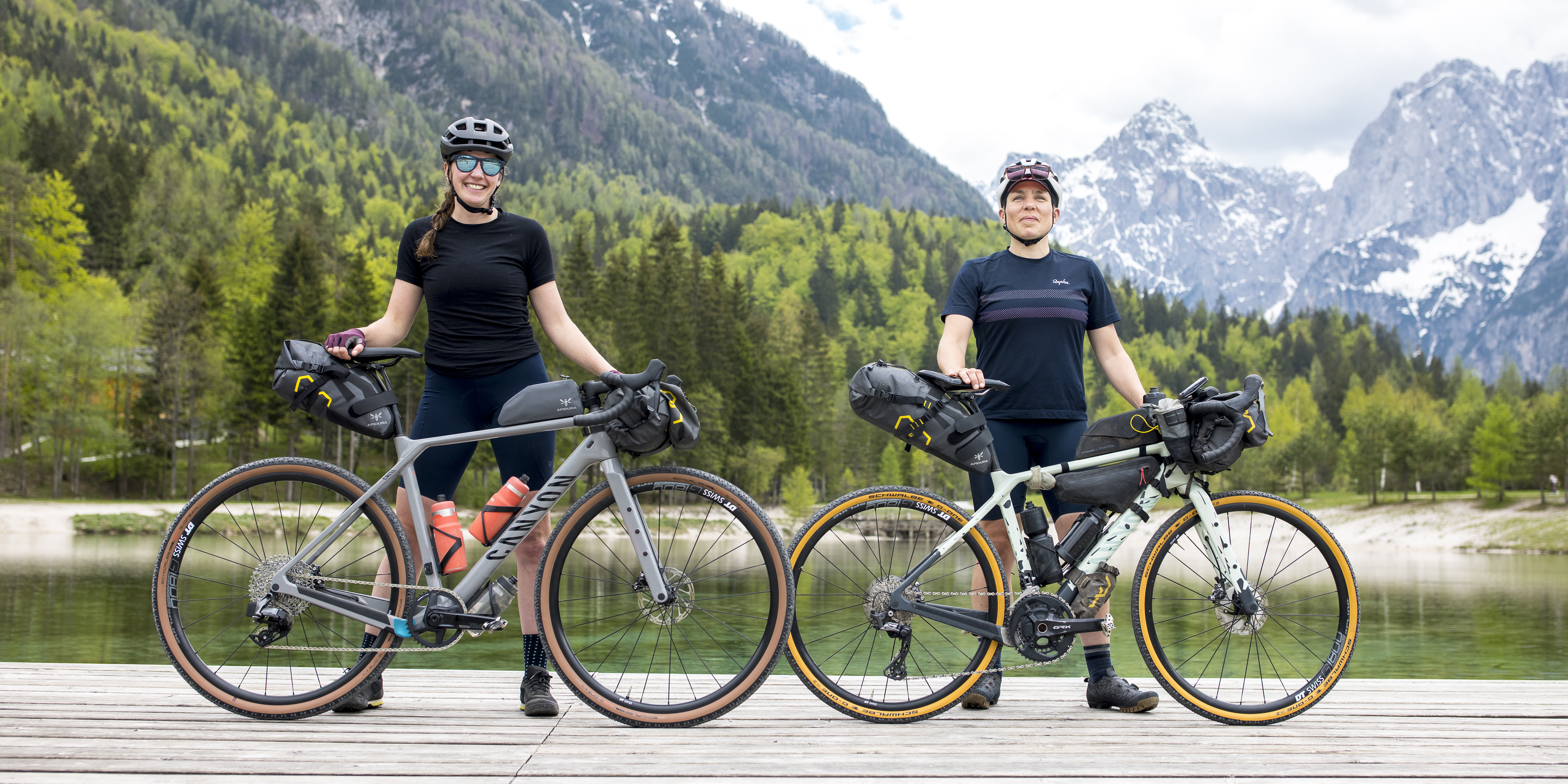
Shape of things to come
So thanks to Emily, Jenny, Evie and others I’m going to try and join them on a journey of improved self-acceptance and appreciation, and I suggest we all try and do the same. Because we’re all fighting our own battles in many, many ways, but we’re very lucky to have mountain biking as a medicine. A world that’s far kinder on our knees than running, and doesn’t sink us into a viral soup like swimming. A place where we can freewheel if we want, and use trees and constantly changing nature not just to nurture our souls, but also hide fitness levels that would be utterly exposed on the open road.
In short (or tall, or thin, or wide) whatever shape we are – and whatever shape we’re in – let’s make the most of it, and let mountain biking make the most of us.
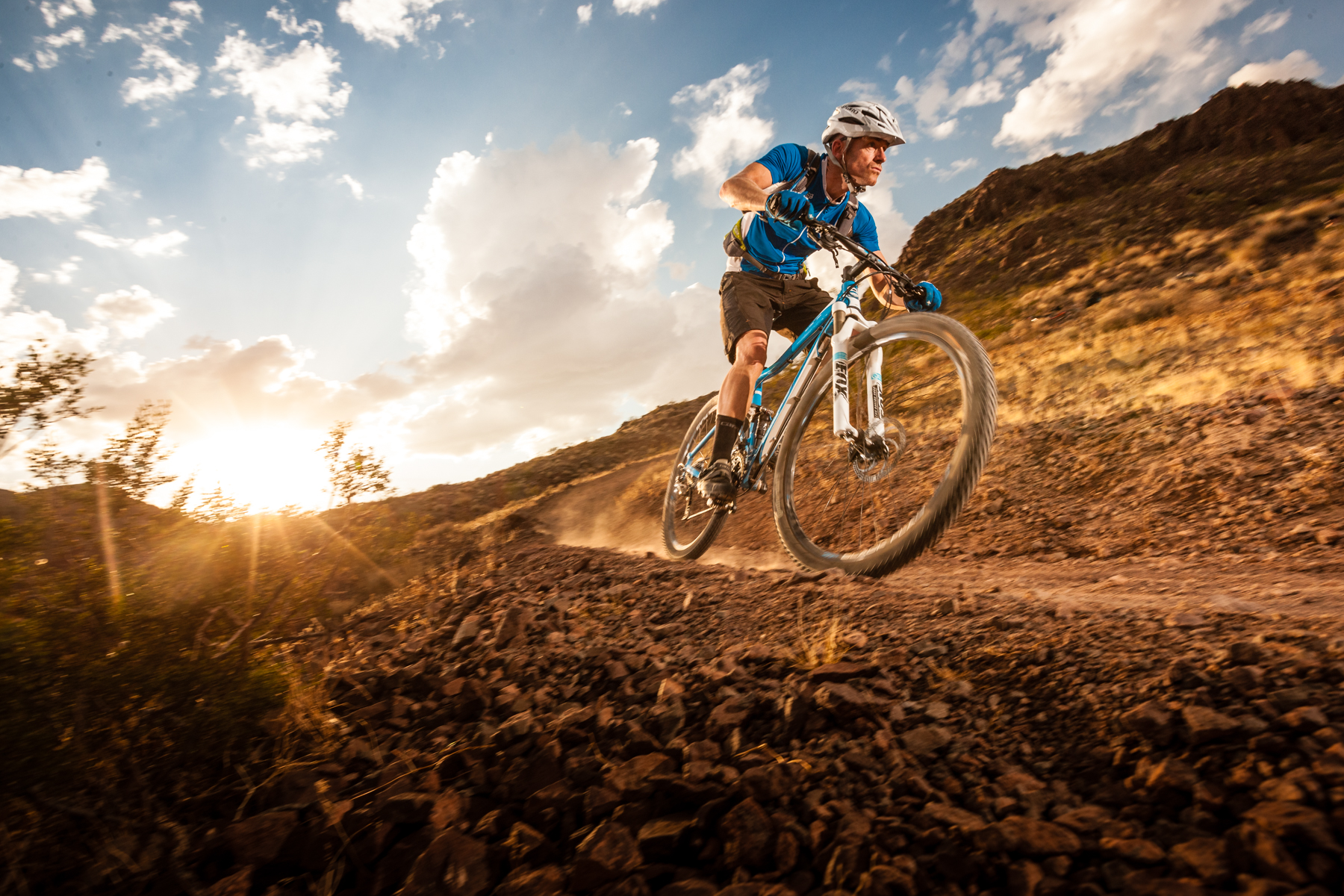
Guy Kesteven has been working on Bike Perfect since its launch in 2019. He started writing and testing for bike mags in 1996. Since then he’s written several million words about several thousand test bikes and a ridiculous amount of riding gear. He’s also penned a handful of bike-related books and he reviews MTBs over on YouTube.
Current rides: Cervelo ZFS-5, Specialized Chisel, custom Nicolai enduro tandem, Landescape/Swallow custom gravel tandem
Height: 180cm
Weight: 69kg
